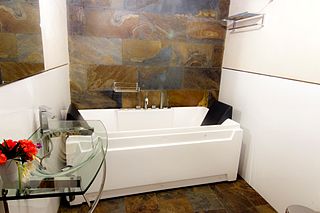Description
Although 71% of the Earth’s surface is covered by water, only 3% is fresh water, and specifically, only 1% can be consumed, as most of it is in a solid state in glaciers. For this reason, water is a scarce and limited resource, but at the same time it is indispensable for living things. Hence the importance of not wasting water and avoiding pollution.
What can I do?
 Never leave a tap open when not in use. There is no need to waste water while washing your hands or teeth, or when you soap yourself in the shower. A good tip for saving water is to use a glass to brush your teeth.
Never leave a tap open when not in use. There is no need to waste water while washing your hands or teeth, or when you soap yourself in the shower. A good tip for saving water is to use a glass to brush your teeth.- Use aerators or flow reducers on taps to reduce water consumption. A 40% reduction in consumption can be achieved.
- Quickly repair any dripping or leaking faucets. If you detect any leaks at the university, report them to the maintenance service or the centre’s information point.
- If you have to change a tap, put a single lever one, this way you will save water, as with this system the desired water temperature is reached more quickly.
- Take a shower instead of a bath. You will spend about 4 times less water and save 65% energy.
- It uses low-consumption shower heads to save almost half the water as well as energy.
- Use double push button or partial discharge systems for the toilet cistern. The water saving can be up to 60%.
- Do not use the toilet as a bin, as you will be wasting all the tank load (up to 10 liters of water) each time you press the button.
- Turn off the water tap when you go on vacation. This will prevent uncontrolled water leaks while you are away from home.
Impact on the environment

* Image: Bathroom. By Trevejo (Personal work)[CC-BY-SA-3 .0] , via Wikimedia Commons (http://commons.wikimedia.org/wiki/File %3ACuarto_de_ba% C3 %B1o_con_ba% C3% B1era_hidromasaje.jpg)